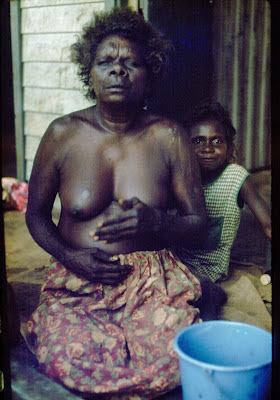Uncertainty Principle
"It is in the admission of ignorance and the admission of uncertainty that there is a hope for the continuous motion of human beings in some direction that doesn't get confined, permanently blocked, as it has so many times before in various periods in the history of man."
~ Richard P. Feynman, Physicist
Humans are not comfortable with uncertainty. We like certitude, definition, direction.
Otherwise we feel like an unobserved photon of light - neither particle nor wave.
Or perhaps both.
I'm trying to enjoy my time as a photon, dodging direct observation, slipping between cultures and continents.
The more I get to know London, the more I feel it is the Capital of Uncertainty, home to the (literal and metaphoric) homeless who are increasingly a global norm.
If you're like me, you hesitate when people ask "Where are you from?" or "What do you do?" I mean, how can there be one, simple answer to those labyrinthine questions!
For a small but growing band of professionals, there are simply no models out there for what we want to do.
We are not (unlike many university departments) "interdisciplinary" in name only. We are connectors and integrators to the core.
We gulp down knowledge from diverse sources, synthesize it, then spit out this spidersilk braid of different theories and paradigms - which, I believe, will one day be incredibly useful in pulling the world out of the deep pit into which it (or some of it at least) has fallen.
I think a lot of uncertainty stems from the fact that the entire world has entered uncharted waters, virgin territory. The old models don't work, and we don't have a firm enough grip on what the new ones should look like.
Yet there is a pioneering edge to this unknowingness. An edge of inventiveness and creativity that many people are beginning to explore.
But you still have people who look askance when you say, "Well, I have degrees in International Relations, Public Policy, Education and Philosophy - but I'm really interested in journalism right now. Also literacy and migration..."
Are you a dilettante? Some people wonder. Or just another example of one of those poor, lost kids who dabble in this and that before settling down to a nice stable job in accounting.
No! I want to shout. All these young people searching for themselves and their "calling" are not, generally speaking, self-absorbed (or at least, like most of us, only mildly so).
Because having a calling means answering a need, a need only you can fill. And you find that need by going deep down to the roots of your tree, where the little grubs and leaf moulds live, and finding that - goodness! - you actually are connected to this strange, wandering spacerock we call home.
You discover that your head may be up in the stars, but your feet are fed by subterranean seas...
Being neither animal nor angel, neither atom nor cosmos, humans are paradoxes, bundles of contradictions.
But once we begin to make peace with ourselves as "between worlds", there is tremendous potential to be found.
For me, it's the tension between opposites that sparks originality and progress.
"Peace on earth" will not come when everyone looks and acts the same. Homogeneity creates weakness and disease - like crop monocultures that are highly susceptible to blights that can cause entire population collapse.
Hybrids are hardier and healthier (sorry for the alliteration), and usually much more interesting.
But hybrids are also harder to label, define, and stuff into pre-existing boxes.
So it comes back to uncertainty again - to being comfortable with new forms of life and work that may defy easy definition.
I like to think of uncertainty as the creative principle that underlies our universe.
In fact, Heisenberg's Uncertainty Principle is one of the cornerstones of quantum mechanics - and therefore describes what's really going on "beneath the surface" of the physical world.
It basically states that the more precisely you measure a particle's speed, the less you can know about its location, and vice versa.
For me, the Uncertainty Principle is how the universe manages to be both measurable and mysterious at once.
At the subatomic level, the universe is just fluid enough to slip through our fingers when we reach out to grasp it.
It's the universe saying, "You can know this much, but no more..."
As physicist and historian Jacob Bronowski said, "The Principle of Uncertainty or, in my phrase, the Principle of Tolerance, fixed once for all the realization that all knowledge is limited."
So it reminds us to be humble.
It also reminds us to be alive.
Because for me, it's this fundamental uncertainty that is the secret engine of growth and evolution. It's what makes the universe expand.
It's what Emily Dickinson meant when she said, "Dwell in possibility."
Because uncertainty is just another name for possibility, for the freedom inherent in each speck of light, to choose where it's going - and how fast it will get there.












